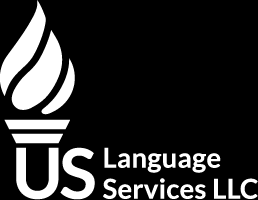Studying Abroad

You may hear the term “life-changing” thrown around for things like switching your car insurance provider or trying a limited-time chicken sandwich at the local fast food chain, but studying abroad is one of the precious few life experiences that can truly earn the description of “life-changing.” A proper educational program in a foreign country will open your eyes to not just a new country, but to the bigger picture – just how immense and diverse our world is.
Most study abroad programs are for high school and college students, meaning that these experiences come at a perfect time when many of us are wondering about what path we should take in life and trying to decide what is important to us as people. Studying in a foreign country provides the chance to obtain real-world education in a specific academic field, but the practical applications are complemented beautifully by a highly social and exciting setting. Consider the difference between reading about French Impressionism and touring local galleries with your new Parisian friends.
Although studying abroad has a wealth of benefits, it can be a daunting experience and there are a lot of misconceptions about what programs are available and what to look for in a good one. Below we’ll look at some of the most frequently asked questions about studying abroad.
In this guide we will cover these questions:
- Why study in a foreign country?
- How old do you have to be to study abroad?
- How do I choose the right country for studying abroad?
- How long does a program last?
- What are the most popular study abroad destinations for US students?
- What if my school doesn’t have a program I like?
- What do you actually study?
- Are classes with other foreigners or locals?
- Do I need to speak the language to study abroad?
- Where will I live studying abroad?
- What kind of applications and paperwork are required to study abroad?
Why study in a foreign country?
There are numerous reasons to study abroad, ranging from future career advancement to experiencing the inimitable experience of immersion in a new culture, but one of the most significant benefits comes in the form of personal growth. You will face challenges that require determination, resilience, patience, and sometimes a complete reevaluation of your own view of the world. People usually come out of a foreign study program with new skills that will last them a lifetime.
How old do you have to be to study abroad?
These programs are generally associated with undergraduate students, but there are also options for high schoolers and even older adults. High school programs typically require students to be 14, though there may be shorter-term programs for younger students.
How do I choose the right country for studying abroad?
This is a crucial decision and will depend mostly on what you are studying and who you are as a person. You can go almost anywhere, from cosmopolitan Hong Kong to rural Sudan, and you need to think carefully about just what kind of experience you are after. Obviously, you will need to consider things like your budget, field of study, and countries available at your particular school, but there are many other important things to consider, like a country’s safety, language, cultural practices and beliefs, and more.
How long does a program last?
Most programs last for one semester. There are also summer programs that last a few weeks and year-long programs.
What are the most popular study abroad destinations for US students?
For US students looking for an English-speaking country, some of the most common choices are the UK, Canada, and Australia. For those looking to practice a foreign language, some of the most popular choices are Spain, Italy, and France. It is important to note, however, that there are programs in nearly every country in the world, so research as many options as possible before making a decision. The right adventure for you may be more off the beaten path.
What if my school doesn’t have a program I like?
Most colleges and universities offer study abroad programs, as do some high schools. If your school does not have your dream program, it is possible to study abroad through another school or independent organization, then transfer the credits earned back to your school. If you are considering going this route, talk to your school beforehand and make sure that you will get credit for all the work you do abroad. If not, you may fall behind, be forced to graduate late, etc.
What do you actually study?
There is a study abroad program for practically every subject you can study in the US, as well as many more that are only available abroad. In non-English speaking countries, the academic program will usually involve foreign language classes, plus classes in whatever your particular field of study is, whether that’s STEM, business, the arts, etc.
Are classes with other foreigners or locals?
This depends on the country’s language and your individual language skills. If you are still learning the language, you will likely be in language classes with other foreigners, though at a school with both local and foreign students. If the classes are in English or you are already advanced in a foreign language, you will likely be in classes with local students.
Do I need to speak the language to study abroad?
You do not have to already know the language, but you do have to want to learn. Most students go to a non-English speaking country in part to develop their language skills, and many programs provide options for everyone from absolute beginners to fully bilingual students.
Where will I live studying abroad?
The most common accommodations are homestays with a local family or group living with other foreigners. Both options have their benefits and disadvantages. It is rare that you would be living by yourself somewhere.
What kind of applications and paperwork are required to study abroad?
There are typically two major applications – the application to the program itself, which may require academic records, an interview, and essay questions, and the visa application, which will require specific dates, details on the purpose of your visit to the country, and possibly medical and legal records. You may also need certified translations of your documents.
Guaranteed Acceptance
All our certified to English translations are accepted by the USCIS. Our translations follow the guidelines established by the USCIS and are also accepted by educational institutions.
Most Requested Documents
FAQs
You can order most translations 24 hours a day, 7 days a week through our online store. For large projects (more than 20,000 words or 50 pages), please request a quote.




